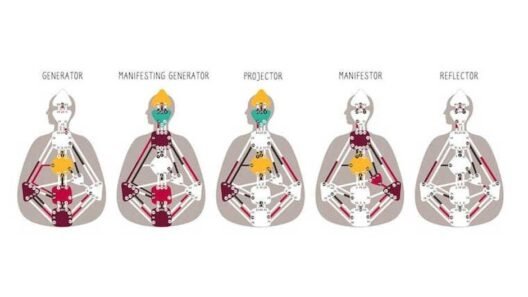Welcoming a new family member is one of life’s most memorable and special experiences. However, it also brings numerous new challenges especially when it comes to managing work and family. As a new parent, you are suddenly juggling between midnight feedings, changing diapers, and the increasing demands of your job.
According to the Pew Research Center, parenting in America today is far from easy. A report published in 2023 suggested that 41% of American parents consider the job to be tiring most of the time. Also, 29% of them think it is stressful. That leaves half the parents struggling with their daily responsibilities. Things are pretty much the same in Canada.
It is natural to feel exhausted or overwhelmed when you are a busy professional, but one can cope with these feelings. Mastering work-life balance as a young parent is about setting realistic expectations, openly communicating, and giving yourself plenty of grace.
In this article, we have some effective strategies to help you create a regime that supports both your career and your growing family.
Have a Plan Before the Baby Arrives
Unintended pregnancies are the ones that are unwanted or mistimed. The CDC notes that the number of such pregnancies in the US has declined from 43.3% to 41.6% between 2010 and 2019. The numbers may have come down further after the pandemic. However, these are still concerning as almost 4 in 10 couples start parenting without prep.
You need to take some time to figure out what life might look like before your baby arrives. This is even more important when both parents are busy with their jobs or businesses. Have an honest discussion regarding your parental leaves, work schedules, and financial plans with your partner.
Moreover, be ready to handle sleepless nights, preparing baby food, and doing household chores. Having an efficient plan in place can reduce stress and help you both feel more prepared.
You must know that things do not always work out as expected but talking through scenarios beforehand will give you a strong foundation to adjust from. The more you plan together, the easier those first few weeks will feel.
Decide on Shared Parenting Responsibilities
Parenting is teamwork and requires an equal contribution of both partners. Therefore, it is important to decide early on how you will divide responsibilities. You need to talk openly about who will handle nighttime feedings, diaper changes, and pediatric visits.
One of you might handle the soothing, while the other manages bath time or laundry. There is no one-size-fits-all approach. Thus, you need to play to each other’s strengths and be willing to swap duties.
Sharing the load reduces burnout and helps both parents bond with the baby. You need to keep in mind that flexibility and communication are essential components of raising a newborn baby.
Know When to Start Formula Feeding
It is your personal choice as parents to decide when to introduce a formula. Some parents start right away. On the other hand, others might start it after a few weeks or months. Formula can be a good option if you do not have time for breastfeeding because of the office work. However, consider potential pitfalls along the way.
Remember the infant formula crisis in 2022? According to the American Academy of Pediatrics, breastfeeding initiation rates in the US increased by 1.96% during the crisis. The numbers continue to be high.
Choosing the right formula is equally crucial, particularly after the danger highlighted by the NEC lawsuit. TorHoerman Law reports that brands like Similac and Enfamil are facing legal claims due to the dangerous products they sell. They caused many preemies to develop necrotizing enterocolitis.
According to the latest NEC lawsuit update, the first trial in the multidistrict litigation (MDL) is due soon. The victims can expect high settlements, considering the damage caused by cow-milk-based formulas.
Have a discussion with your pediatrician for guidance and trust your instincts. You need to follow a feeding regime that works for your family and supports everyone’s health and happiness.
Find a Reliable Childcare Provider
Finding a childcare provider who is trustworthy can feel exhausting. However, it is a crucial step for peace of mind when you return to work. Start researching friends who are ready to help, go to local childcare centers, or interview nannies and babysitters.
Furthermore, you can also look for providers that match your parenting values and offer a secure, nurturing environment. Always ask questions about schedules, safety protocols, and communication.
The latest census revealed that most American parents do not have a formal childcare strategy. Speaking in numbers, one in five parents relied on relatives for this, which may not be feasible if you don’t have someone who can help. Childcare in Canada is relatively easier to access. Timely planning and preparation will ease your transition to work.
Seek Support at Work
You should always lean on your workplace for support when it comes to finding your footing as a new parent. Fortunately, many organizations have supportive policies in this context.
Have a talk with your manager or HR about flexible schedules, work-from-home options, or parental leave policies. Also, share with your coworkers about your new responsibilities. It is because they can offer understanding and assistance when needed.
Many organizations have employee assistance programs, parenting groups, or resources for new parents. Being communicative about your needs can simplify your transition back to work. It also helps you manage professional expectations.
Frequently Asked Questions
What do working parents struggle with when they have a baby?
Working parents often struggle to juggle work, household chores, and childcare. Common difficulties include sleep deprivation, not completing the chores, and being late to work. Sometimes, they may not get enough quality time for themselves, their partner, or their baby while feeling overwhelmed.
What is the hardest month with a baby?
Many young parents find the first two to three months the toughest. Sleep disturbance, frequent feedings, and continuous soothing make this period especially hard. The second month, in particular, can be difficult as the initial excitement goes away and exhaustion sets in.
What is the ideal length of maternity break?
The perfect maternity break is at least six months according to many parents. This is because the first year is considered optimal for bonding, recovery, and supporting the baby’s overall development. However, most leaves are shorter, and the actual length often varies based on personal finances and workplace rules.
Juggling between work and life as a new parent is not a piece of cake. It requires a little planning and lots of patience. You must remember that what matters most is finding what works for you and your family.
Love yourself, talk openly with your partner and employer, and never hesitate to ask for help when you need it. You should cherish the beautiful chaos of parenthood while keeping your workplace goals in sight.













